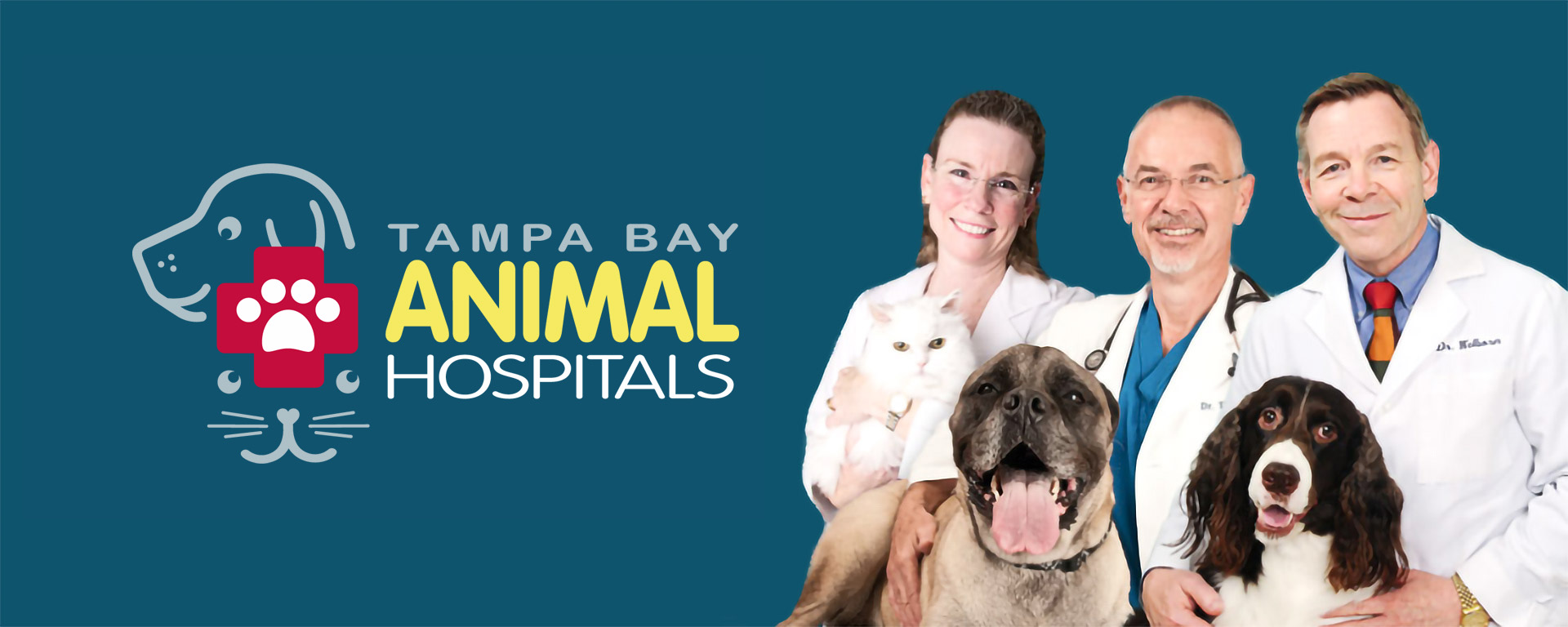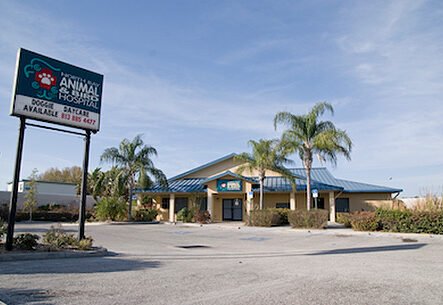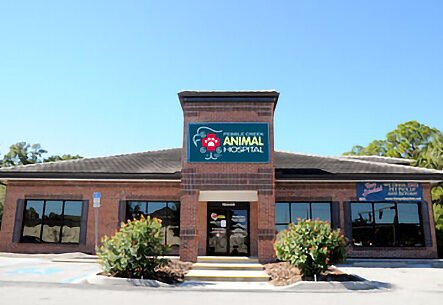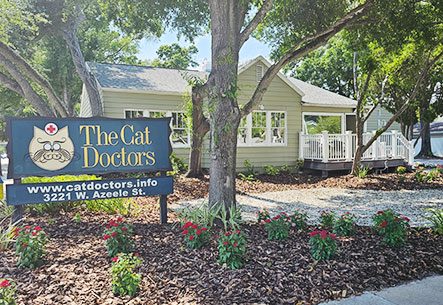About Us
board certified in canine, feline and small animal practice.

Our founding principles at Tampa Bay Animal Hospital have guided us for nearly 60 years
Whatever path we’ve taken to make it to Tampa Bay Animal Hospitals, we all share an appreciation, respect and deep love for every creature that comes through our doors. Most of us are pet parents or have been at some point in our lives. We know the kind of care we would want our pets to receive, and we apply that to our everyday routines and the work we put in when caring for your pet.
Even while we’ve continued to expand and grow, our guiding principles have been the foundation of all that we do at Tampa Bay Animal Hospitals. Each of our eight locations remains committed to excellence, compassionate care, and serving the community with integrity in all that we do. With these principles in mind, everything from our training to our best practices and daily operations has continued to thrive in good times and adversity.
We invite you to learn more about these guiding principles:
• EXCELLENCE
At Tampa Bay Animal Hospitals, we hold ourselves to a high standard of excellence in all that we do. Everyone strives to be well-spoken and kind, to uphold our reputation as a group dedicated to quality care, able to handle any situation. For all of our veterinary team, the way we treat others, and our professionalism is really important. As is our desire to stay on top of trends for pet health. Even though we’ve been around for many years, we are dedicated to education for all of our team, set on evolving and not allowing us to grow stagnant or complacent in yesterday’s methods. Our veterinarians have a Journal Club, where they meet to review medical journals and to compare how we are currently doing at our practices, and what we can do better, each and every day at our eight locations. We’re led by Dr. Welborn, a past American Animal Hospital Association President, who is able to keep all of us motivated to stay at the top of our game when it comes to pet care.
• COMPASSION
At the heart of what we do, we know it’s all about the pets, the patients, and alleviating their suffering. We have compassion for our clients, especially when their pets are sick. We know it matters that you may be anxious or scared for your pets, and we want to reassure you that your pets are in good hands. When you understand the importance of a pet to a client, as we do, you understand why people act the way they do in some cases, and how to comfort them and communicate with them more effectively when they’re upset. We want to go above and beyond with our care, not only towards the patients, the pets, but also to our clients. As we have learned to see things from the pet owner’s perspective, we are able to provide better and more effective veterinary care. As pet owners ourselves, we empathize with you and will work with you to ensure the best possible outcome for your furry friends. Our client-veterinarian relationships are so important to us, we’ll do whatever it takes to earn and keep that bond.
• INTEGRITY
In any health field, integrity is key. We are in the industry of keeping pets healthy, and we are only able to be truly successful when we are able to work with you, the pet owners, with trust and open communication. From the hiring process on, we ensure that every single person that works with and for us at Tampa Bay Animal Hospitals is someone that lives their life with purposeful integrity. There are so many small tasks and responsibilities that come with working in this industry, that keeping that honesty and moral code is so important and so very necessary. We will be open with you from the moment you arrive at any of our eight locations, keeping you updated with every piece of information we know about your pet, in order to provide you with the best possible options when it comes to their care. You don’t have to worry about any unexpected or unwelcome surprises. We will walk you through what we know to be the best treatment plans you can afford, and we offer ways to pay for care in cases where it may seem unaffordable. That’s part of our promise to you.
Tampa, FL 33615 (View map)
Tampa, FL 33647 (View map)
Tampa, FL 33617 (View map)
Tampa, FL 33647 (View map)








